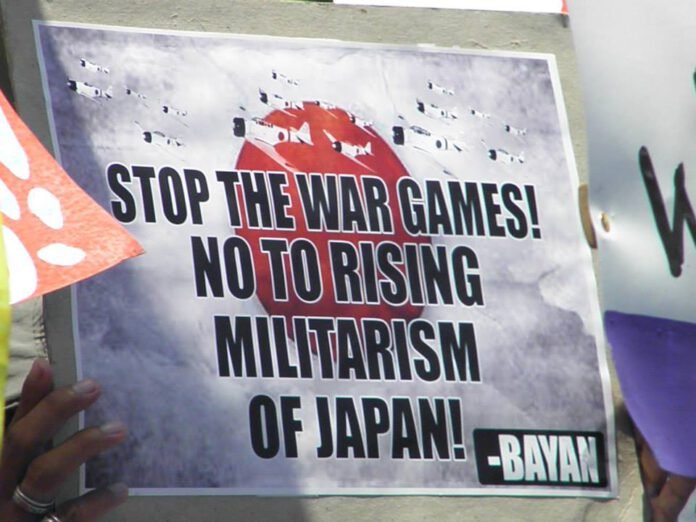By ILPS-Philippines
Behind pomp and circumstance of Akihito’s Manila visit, Philippines being served as “sashimi” to Japan
MANILA – Progressive groups are up in protest over the state visit of Japanese Emperor Akihito and Empress Michiko in the Philippines.
The Philippines Chapter of the International League of Peoples’ Struggle (ILPS-Phils) said that “the government stands on ceremony for Their Majesties as Pres. Aquino serves the country like sashimi to Japan — raw and sliced.”
The Philippines is basically an agricultural and raw mineral supplier for Japan. Included in the “slices” are commodified labor and raped women.
Japanese atrocities during World War II are still being felt especially by comfort women who are not content with a mere apology from the Emperor. Japan is rearming amid its ailing economy, with its post-war plunder in the Philippines.
At the honor arrival for the SAF police commandos slain in Mamasapano last year, Pres. Aquino opted to attend instead the inauguration of a Mitsubishi Motors Corporation Plant. There are about 1,700 Japanese companies in the Philippines.
At the APEC sidelines in Manila last November, Pres. Aquino also asked Japan Prime Minister Shinzo Abe for large patrol vessels to augment US second-hand cutters for a so-called “credible defense” against Chinese intrusions.
“The Japan-Philippines Economic Partnership Agreement (JPEPA) which came into force in 2008, and the very first free trade agreement signed by the Philippines, gave away our agricultural, mineral and marine resources while exploiting cheap labor. It would be worse with the regional US-led Trans-Pacific Partnership (TPP) also being peddled by Japan,” the ILPS-Phils said.
By setting up manufacturing facilities in the Philippines, Japanese companies are able to slice-off the duty-free market access to the EU and the US, including products which are key export interests of Japan. They also enjoy tax holidays and low-wages in PEZA (Philippine Economic Zone Authority) areas like Calabarzon (Cavite, Laguna, Batangas, Rizal and Quezon).
Pres. Aquino provides a ceremonial welcome for the Akihito royal couple as the Philippines suffers from worsening trade deficits. Its largest deficit on record by far was USD1,937 million in October 2015. Exports to Japan, the country’s top destination of exports, fell by 7.7 percent to USD1.04 billion during the same period.
Amid the trade gap, Japan’s Marubeni is upbeat about its current Philippine investments in power, energy development, water utility, and mass transportation (MRT 7 and LRT 2 extension). One of the biggest credit card companies in Japan is also reportedly firming up partnership with China Banking Corp of the Sy family.
Official Development Assistance (ODA) projects include the Mini-Hydropower Development Project in Ifugao, the Metro Manila Interchange Construction Project, the Flood Risk Management Project for Cagayan de Oro River, the Metro Manila Priority Bridges Seismic Improvement Project for Guadalupe Bridge and Lambingan Bridge, the Davao Bypass Construction Project, including a long-tunnel structure in Davao City.
The Philippine government also signed last year a $2-billion loan agreement for the Japan International Cooperation Agency (JICA) to fund part of the railway system between the Tutuban railway station in Manila to Malolos, Bulacan.
In mining, Nickel Asia Corp. reported that Taganito HPAL Nickel Corp., which it co-owns with Sumitomo Metal Mining Co. (SMM), would extract scandium, a rare earth element found in the ore used by SMM subsidiary Coral Bay Nickel Corp. (CBNC).
The Philippine mining policy framework was rated as the second-worst in the world, behind only Honduras, according to a poll by the Fraser Institute, a Canadian think tank.
I L P S Philippine Chapter
Office Address:
2/F IBON Center, 114 Timog Avenue
Quezon City 1103, PHILIPPINES
Tel: +63 2 9277062
E-mail: ilps.phils@gmail.com
Website: www.ilps-phils.com
Facebook: www.facebook.com/ILPSPhils
Twitter: www.twitter.com/ILPS_Phils




